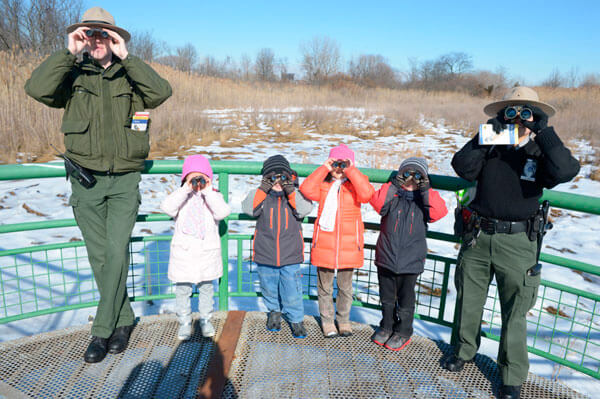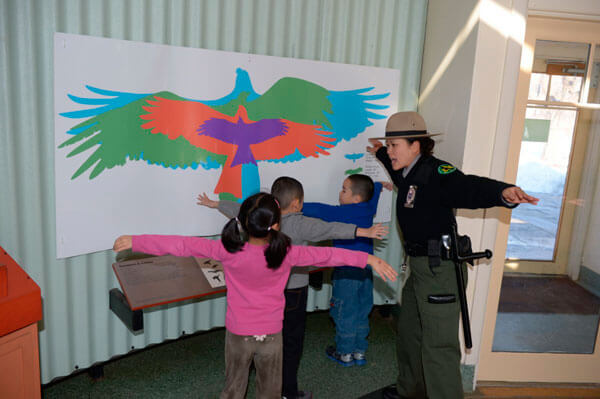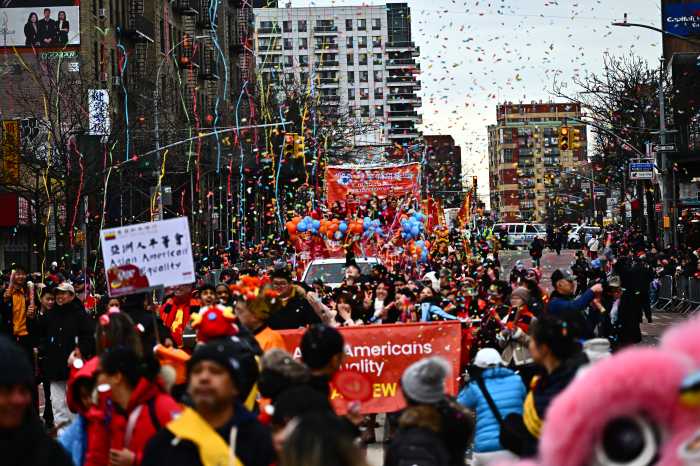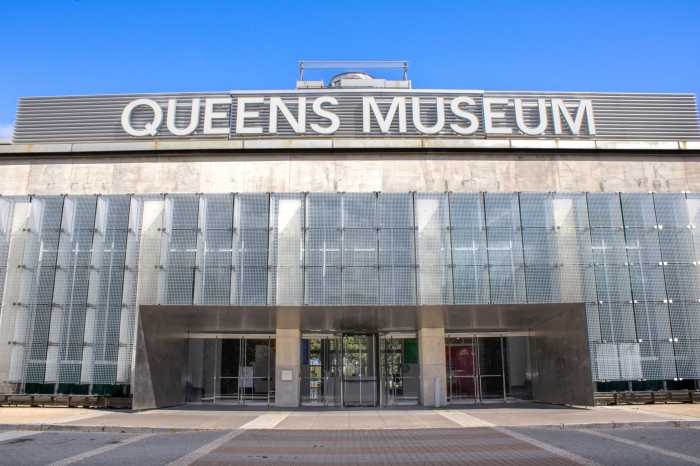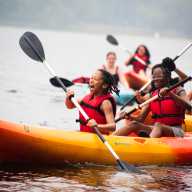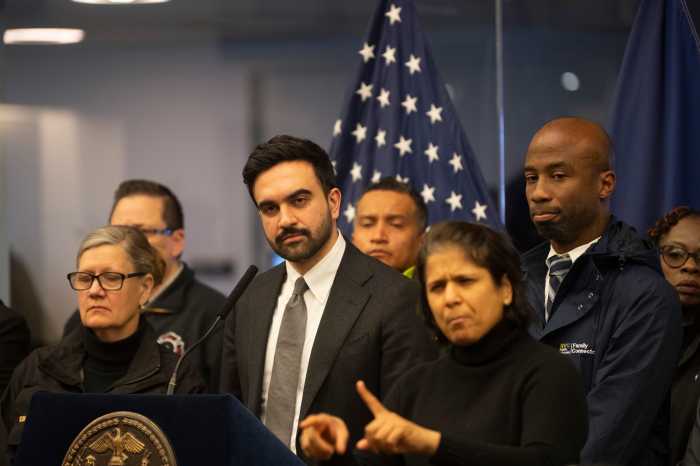By Tammy Scileppi
The short, often dreary days have some folks feeling like winter is for the birds.
Avian enthusiasts across the borough would agree.
With binoculars in hand and sporting hooded parkas, this special breed of nature-loving adventurers can be found wherever birds gather — no matter the forecast. And many would tell you their favorite seasonal birding spot is by Jamaica Bay, where they can observe an amazing variety of waterfowl and other birds in their natural habitat.
These hearty souls flock to the 18,000-acre wetland estuary known as the Jamaica Bay Wildlife Refuge to get their birding fix. And they come back each season to see what new species they can find there.
Comprising an area about the size of Manhattan, and surrounded by the Rockaway Peninsula and Brooklyn, Jamaica Bay is a favorite stopover for migratory waterfowl and shorebirds. And combined with the rich food resources found there, it is a vital habitat for fish, other wildlife, and plants, as well.
Queens-based park ranger turned supervisor, Marc Sanchez, said he hopes everyone comes out to a free event Saturday afternoon, called Birding: Jamaica Bay.
The program will take place in Bayswater Park, located on the eastern end of the Rockaway Peninsula.
Enjoy a ranger-guided walk in quest of birds and other wildlife, and get acquainted with different types of ducks and geese that spend the winter there, like the brant goose, which sports a short, stubby bill, an under-tail that’s pure white, and a short black tail. Participants may also spot a bufflehead duck, or a small wader, like the dunlin. During migration or in their winter habitat, large numbers can often be seen swirling in synchronized flight on stop-overs.
Sanchez noted that local birding programs have been taking place at other spots, as well: Baisley Pond in Jamaica, Oakland Lake in Bayside, Fort Totten Park and Flushing Meadows Corona Park.
Birding programs are offered at Queens parks a couple of times a year, regardless of the weather, and average between 15 and 30 people per session.
With its numerous islands and labyrinth of waterways, Jamaica Bay Wildlife Refuge — part of Gateway National Recreation Area — is one of the most significant bird sanctuaries in the northeastern United States and indeed, one of the coolest locations to observe migrating species in the city.
With more than 330 bird species — nearly half the species in the Northeast — sighted at the refuge over the last 25 years, it is hard to believe that such a strange, exotic place can be found in an urban jungle.
As an integral part of the larger, regional ecosystem, this diverse community also boasts 100 species of finfish, and over 60 butterfly species, and it is also home to a variety of native reptiles, amphibians, small mammals, and one of the largest populations of horseshoe crabs in the Northeast. At the refuge, visitors have the chance to get up close and learn about protecting them.
And the unique landscape is made up of rare native habitats, including an open expanse of bay, salt marsh, several fresh and brackish water ponds, and upland field and woods.
According to Daphne Yun, acting public affairs officer for the Gateway National Recreation Area, a couple of big projects are going on at the refuge.
“We presented the preferred alternative for the West Pond Breach in mid-October. The preferred alternative is to fill the breach,” she said. “We are also working with The Nature Conservancy to remove invasive plants and replant the area with native species. The work began on this project in late November. We hope to use volunteers to help with planting in spring 2016.”
Gateway will host programs on Jan. 9 and Jan. 10 about birds in the winter, and volunteering in Gateway Programs continues through the winter. Because the National Park Service turns 100 in 2016, it has events planned throughout the coming year.
Due to ongoing efforts started by city and federal agencies to promote visitation, recreation, education programs, and scientific research, Jamaica Bay is fast becoming the new “jewel in the crown” of the national and city park system; these changes allow surrounding communities to be better connected to the bay’s natural beauty and history.
If You Go
Birding: Jamaica Bay
When: Saturday, Dec. 26, 1 pm–2:30 pm
Where: Bay 32nd Street and Beach Channel Drive, Bayswater Park
Cost: Free
Contact: (718) 352-1769
Website: www.nycgo


